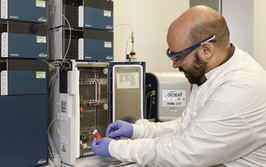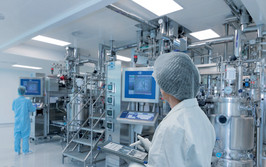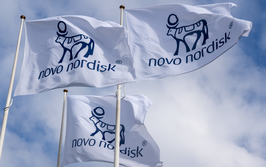The Pandemic Diaries
Experts explain how their companies have coped throughout the pandemic
Andrea Zambon, Sandra Wisniewski | | Opinion

Andrea Zambon, Business Development, Marketing & Communication Director at Stevanato Group
The COVID-19 pandemic is undoubtedly the greatest global crisis of this century. The human cost has been immeasurable, as has the impact on our supply chains. From early on, we could all see its effects as the movement of drugs and therapies slowed globally. Though the industry has overcome some of these early hiccups, we must draw on the lessons learned over the course of the last year to inform our future trajectory. Insights from pharma companies and leaders suggest that vaccination campaigns will take between two and four years to complete – with health workers and at-risk groups taking priority. We must ensure that we are able to maintain a reliable supply as the use of these treatments expands internationally.
One of the key lessons we learned at the Stevanato Group was to preempt change. Undoubtedly, the main challenge we experienced was ensuring production continuity in safe conditions. Another key consideration was our delivery timeframe. Despite the fallout caused by the pandemic, we had a duty to reassure our customers that we were still capable of timely deliveries. For these reasons, we evaluated the need for investment to help increase capacity and hire more people to accommodate the demand for COVID-19-related products, as well as usual supplies. We collaborated closely with our clients so that we could understand the scope of their needs and created an ad hoc communication channel to provide them with weekly updates. This led us to employ an extra 300 people globally in the first eight months of the pandemic to process all our customer requests.
We have also worked closely with our critical suppliers to ensure that we had a robust inventory of materials. From the glass primary packaging perspective, we expanded our manufacturing capacity of medical-grade (Type I) glass vials by 15-20 percent. The close collaboration with glass tubing suppliers to secure raw materials, container closure components, and secondary packaging, was essential to supply full container closure systems when requested by our clients.
Though these have been important steps in addressing the crisis, we’ve also had a keen focus on staff wellbeing and safety. After all, our staff are the force behind our work and play a key role in supply chain resilience! Since the outbreak in China, we established two task forces; one led by our health and safety office to ensure the protection of our staff, and a second led by our marketing department to ensure business continuity for pharma. We adopted sanitizing and cleaning protocols in our operations from mid-February 2020 and trained our staff about good hygiene and health practices, including social distancing and self-quarantining. We also maximized remote working whenever applicable. Additionally, we redesigned production layouts and shifts to ensure social distances were maintained.
Until the pandemic is put to an end, we must all continue to commit ourselves to finding solutions for problems as and when they occur. We’ve tried to stay proactive in supporting pharma companies and their need for appropriate packaging. But we will all have different roles to play as the year unfolds and new situations present themselves. If we all manage to stay the course, hopefully, we will maintain supply chains and ensure that the people in need of these critical treatments are still able to receive them.
Sandra Wisniewski, President, Grace Materials Technologies
The moment the severity of COVID-19 became clear, we knew we had to find ways to keep operating safely. We had an important role in the response to the pandemic because customers in the pharma and healthcare industries depend on us for specialty chemicals. We’ve implemented strict protocols to maintain health and safety for all essential workers. We have also hosted webinars to replace live events and deployed 3D virtual tours to enable the completion of quality and safety audits without the need for travel. Our senior management teams conduct daily meetings to review the global situation.
It was crucial that we found ways to continue to operate since our products are being used to prevent, detect, and treat COVID-19. For example, our magnetic silica particles are used in tests that rapidly separate viral RNA and process nasopharyngeal swabs, increasing the ability to detect COVID-19 infections. Our silica is also used to purify and deliver life-saving gases, such as nitrous oxide, which has been authorized by the FDA to treat COVID-19-related heart issues. Our high purity chromatography resins purify COVID-19 vaccine components and our regulatory starting materials are being used to build APIs for the treatment of COVID-19. Our silicas and catalysts are also used in the production of hospital-ready masks and gowns.
No business has been immune from the trials of this pandemic, but I am proud of how we have been able to step up and serve in the united fight against COVID-19. Looking back at the past few months, I am extremely appreciative of the focus, flexibility, and creativity that our team has demonstrated. As the world continues to fight this disease, we must stay safe and stay strong.
Business Development, Marketing & Communication Director at Stevanato Group
President, Grace Materials Technologies



















